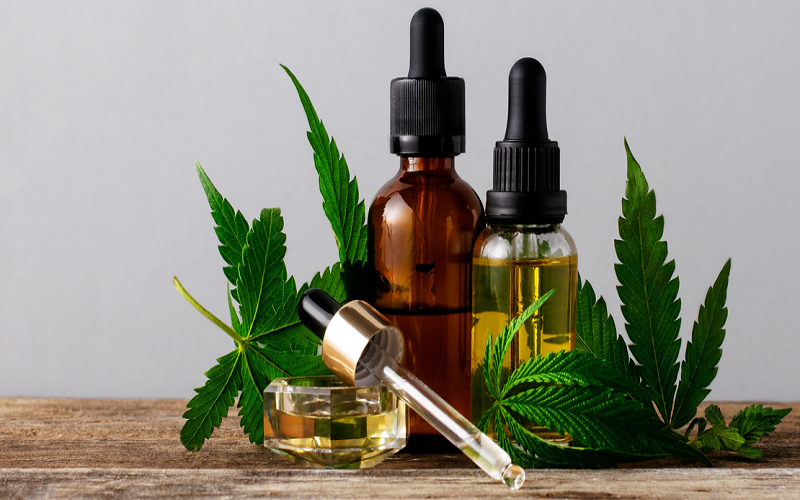There are several tried-and-true tactics for improving your sleep quality, like avoiding blue light and alcohol in the hours leading up to bedtime, using room-darkening curtains, and keeping the temperature cool. However, an increasing number of people have tried all of them with little to no substantial relief. This made people look for other alternatives and one of them is CBD.
Cannabidiol (CBD) is one of the most notable compound components discovered in the cannabis plant. While the effects differ from person to person, research indicates that CBD can have a relaxing impact on humans.
What does the latest research say about CBD and sleep?
CBD interacts with the body’s endocannabinoid system (ECS). This complex network of cannabinoid receptors is found throughout the body and in the CNS where sleep is primarily regulated. In its effort to restore equilibrium, the ECS has an impact on practically every system in the human body. CBD helps the ECS adapt to abnormalities in inflammation, brain health, pain, the stress response, and the sleep-wake cycle.
What is the dosage of CBD I should take for better sleep?
There are many ways to take CBD. You can either take it via sublingual, digestive, transdermal, topical, or intranasal routes, and the one you pick will have a direct impact on how soon it reaches your system and how strongly you experience its benefits. Whichever mode you select, you need to make sure you consume the product at the right time. You can consider taking your CBD oil about an hour before your planned bedtime that way, you will also give the product the time to work its way into your system.
CBD is biphasic, which implies that low and high dosages can have opposing effects. These effects differ from person to person. CBD can make you feel awake when taken in low or moderate dosages, whilst melatonin calms you down before sleep. Taking cbd oil India at higher dosages has been linked to improved sleep, according to research.
However, in a 3-month trial in which anxiety patients received 25 mg to 50 mg of CBD, researchers discovered that improvement in sleep reduced month after month.
What does the research say?
Researchers are still understanding the relationship between CBD and sleep.
- Recent research on people with Parkinson’s disease found that cannabinoids might help to reduce REM (rapid eye movement) sleep disturbances.
- In a 2019 sleep-quality research, more patients reported better sleep than interrupted sleep after taking CBD.
- In a 2020 research, those who took CBD for anxiety and depression reported fewer symptoms and an improvement in their ability to complete everyday tasks. The three-month research stated above discovered that CBD consumption resulted in a persistent reduction in anxiety symptoms.
- In some cases, it was also seen that CBD helps to improve the quality of rest by decreasing the amount of time it takes to fall asleep.
- According to studies, cbd oil India can be used to relieve pain, particularly anxiety caused by discomfort that disrupts sleep. One study found that CBD is beneficial for pain relief, particularly when inhaled.
However, the majority of data suggest that further research is needed on CBD and sleep. CBD’s long-term usefulness is unknown because research is still in its early stages.
What to check when you are buying CBD oil for sleep disorders?
- Beware of brands that make exaggerated promises and CBD claims: It is recommended to stay away from brands that are making too-good-to-be-true claims. To feel more secure in your purchase, ask the brand for a certificate of analysis (COA), which will tell you if the product contains the quantity of CBD indicated on the label or not. A COA will include:
How much CBD is present in the product, THC percentage, and other cannabinoid content, as well as any pollutants like heavy metals, pesticides, or microorganisms?
- Check the labels: If you decide to buy a CBD product, search for labels and choose full-spectrum CBD oil. Then, check the COA to determine the amount of CBD and other compounds in the product. If a product is labelled full-spectrum CBD, it should contain trace levels of THC and other cannabinoids that occur naturally in the cannabis plant.
Should I be aware of any side effects?
Although experts are currently exploring CBD’s long-term effects, the recorded adverse effects are modest. When researchers looked at individuals who took 1,500mg daily, they found that the most prevalent concerns were fatigue, diarrhea, and changes in their appetite/weight.
According to the Mayo Clinic, additional symptoms include dry mouth and tiredness. The appearance of these effects may vary depending on how much CBD you are taking and whether CBD interacts with any other medications you are already taking. Consult your doctor before adding CBD to your bedside table.
Nonetheless, the side effects linked with CBD consumption are minimal.
At last, we are saying
CBD, like the other 100+ cannabinoids contained in cannabis plants, can have varying effects on different people. One research revealed that it can improve sleep duration in those having clinical problems, whereas another published in Frontiers in Pharmacology discovered that CBD had no effect on sleep in healthy participants. Hence, one needs to understand that effects will vary depending on your health. And, if you are considering using CBD oil for sleep, you can check its safety, effectiveness and its legal status by making an online medical appointment with the Hempstrol team of doctors from there you can buy cbd oil online.

